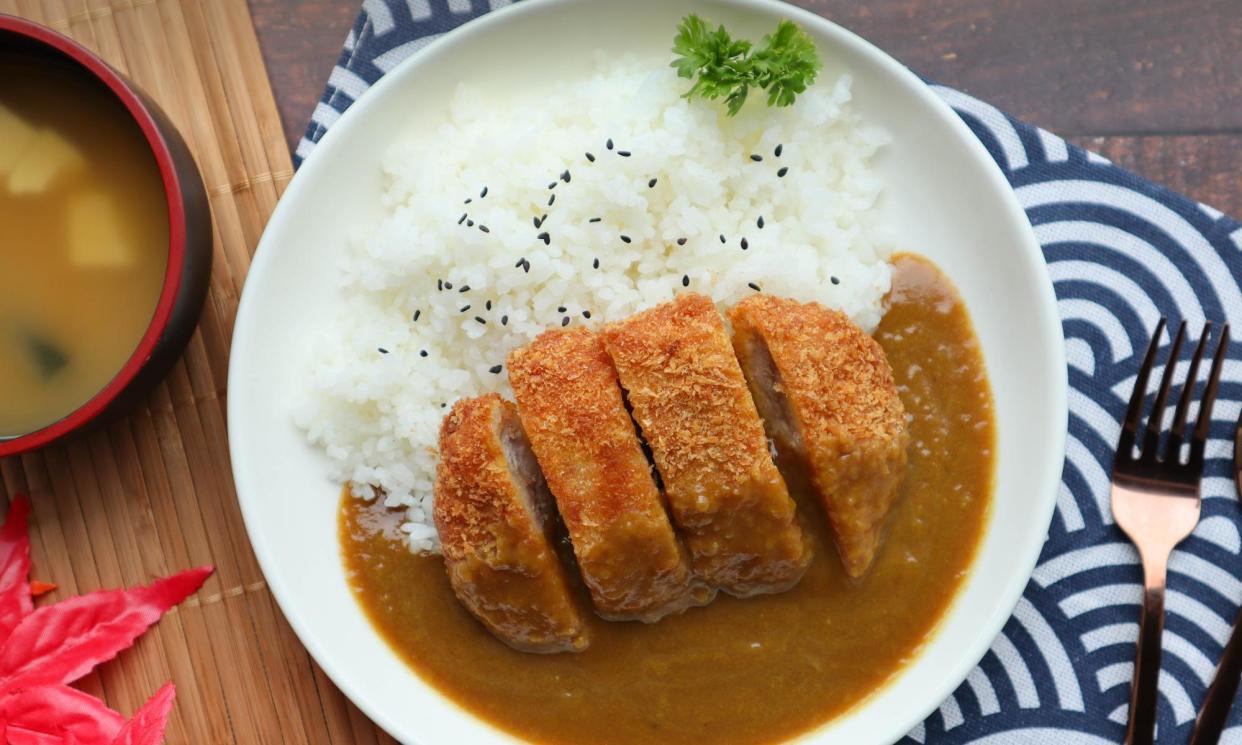The Oxford English Dictionary’s latest update adds 23 Japanese words

Katsu, donburi and onigiri are among 23 Japanese words added to the Oxford English Dictionary in its latest update.
More than half of the borrowed words relate to food or cooking. Santoku, a knife with a short, flat blade that curves down at the tip, and okonomiyaki, a type of savoury pancake, were both added. Okonomiyaki is derived from okonomi, meaning “what you like”, combined with yaki, meaning “to fry, to sear”.
Katsu – a piece of meat, seafood, or vegetable, coated with flour, egg, and panko breadcrumbs, deep-fried, and cut into strips – is considered a boomerang word, a case of reborrowing: katsu is the shortened form of katsuretsu, which is a borrowing into Japanese of the English word “cutlet”.
Related: ‘Wokery’, ‘safe word’ and ‘forever chemical’ added to the Oxford English Dictionary
Donburi, a Japanese dish consisting of rice topped with other ingredients, is also used to describe the bowl in which this dish is served. The culinary use is likely related to the Japanese adverb donburi, meaning “with a splash”, which “could be an allusion to the sound of ingredients being dropped into a bowl”, said Danica Salazar, executive editor of OED World Englishes.
Omotenashi, which describes good hospitality, characterised by “thoughtfulness, close attention to detail, and the anticipation of a guest’s needs”, was also added to the dictionary.
A number of terms related to art also feature in the update. “For centuries, artists from around the world have taken inspiration from Japanese art, and this can be seen in the number of words belonging to the domain of arts and crafts that English has borrowed from Japanese,” said Salazar.
Kintsugi, the Japanese art of repairing broken pottery by joining pieces back together and filling cracks with lacquer dusted with powdered gold, silver, or platinum, highlighting the flaws in the mended object, was added. “The word subsequently developed an additional sense indicating an aesthetic or worldview characterised by embracing imperfection and treating healing as an essential part of human experience,” said Salazar.
Isekai, a Japanese genre of fantasy fiction involving a character being transported to or reincarnated in a different, strange, or unfamiliar world, also made the OED. A recent example of the genre is Hayao Miyazaki’s Studio Ghibli film The Boy and the Heron, in which 12-year-old Mahito discovers an abandoned tower, a gateway to a fantastical world.
OED editors worked with researchers from the Tokyo University of Foreign Studies on the new batch of Japanese words. Non-Japanese words added in this quarter’s update include Bible-bashing, ultra-processed, and bibliophilia.


